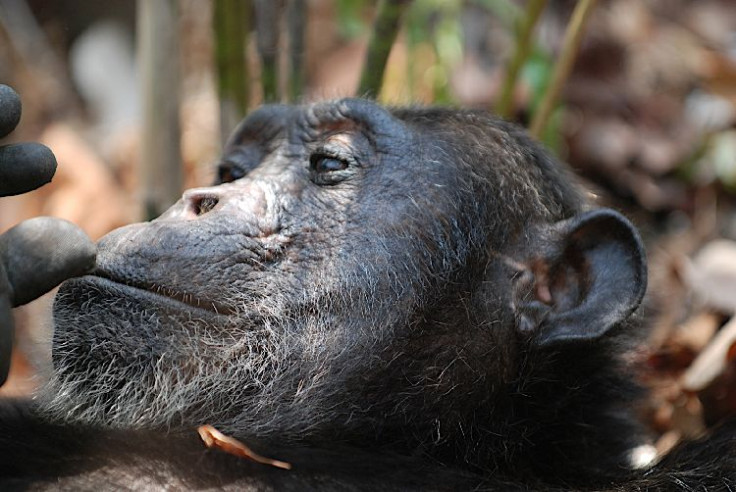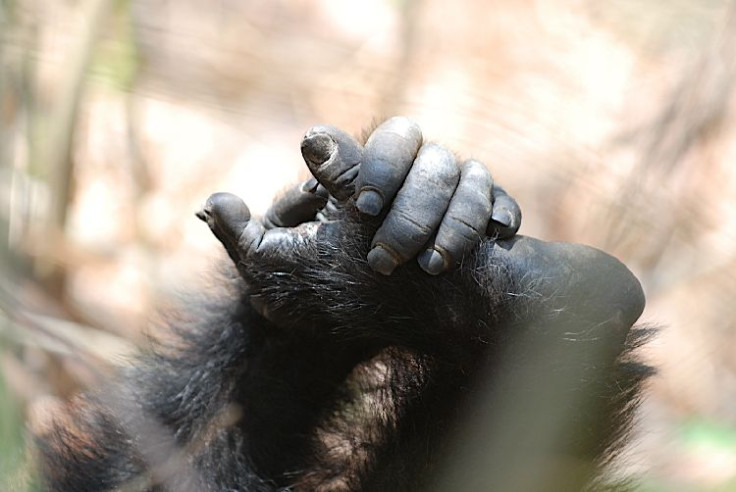We have vastly underestimated apes' intelligence because of our own sense of superiority
The idea that human babies are cleverer than Great Apes "is just ridiculous".
Most psychological research on apes is heavily biased, making humans seem superior in our thinking skills, researchers have said.
This bias gives us a distorted view of apes that makes them seem less capable than they really are, according to a study published in the journal Animal Cognition.
The problem boils down to not comparing like with like. Most apes involved in psychological experiments are raised in captivity, held in labs or sanctuaries. They frequently haven't had a full social life involving other apes, and the vast majority haven't had close social encounters with humans on a regular basis, either.
And yet in experiments, they are frequently exposed to human social behaviours, such as pointing at objects. With no training or exposure to what this means in a social context, it's not fair to compare their aptitude for understanding what pointing means with a toddler, for example.
"Do you need a PhD in experimental psychology to work out that it's problematic when you take an ape form an institution, isolated from western European conventions and nonverbal signalling, and then compare how the ape understands these with a western child raised in a typical western home? You have to give the ape the same kinds of exposure," study author David Leavens of the University of Sussex told IBTimes UK.
But studies that spend significant periods of time training apes to understand nonverbal communication such as this are incredibly rare. As a result, many of the claims made about the relative cognitive abilities of apes and children are simply based on faulty science, Leavens argues.
It's not just that the apes are being expected to understand human communication without exposure to human social interactions, but apes are also being expected to act like a specific subset of humans.
"Apes are being challenged to act like western Europeans. This is a global problem that psychologists have been aware of now for some years – that how we understand human cognitive development and how we understand social behaviour is overwhelmingly defined by how western Europeans act," Leavens said.
"Western Europeans are not at all representative of the human species. So it's even worse than asking apes to act like humans when they're not humans, they're being asked to act like post-industrial people from western Europe."
The result has been claims that 12-month-old human babies use higher order reasoning skills in their social interactions than adult chimpanzees do.

"Do you know many 12-month-old babies?" said Leavens. "It's just ridiculous."
While agreeing that the paper made an important point, psychologist Zanna Clay at the University of Durham, who was not involved in the research, said that it would be premature to write off swathes of cognitive research on apes.
"Anthropomorphism and anthropocentrism are prevalent in research and that goes all the way to the top," Clay said.
"Grant agencies want to know how animals can inform us about human behaviour. There is a bias in funding and policy that does end up shaping the research that people end up doing."
But awareness of the caveats and differences when comparing apes and humans can help to balance out this bias, she added. Many researchers fail to do this, undermining their claims, but it's perfectly possible to assess the relative influence of apes' and humans' social experiences.
Choosing behaviours that are relevant to an animal's biology and everyday life, that is present in a range of contexts, could also help to reduce the problem.
"You need to identify meaningful comparisons," Clay said. "What skills would, say, a mouse needs that a chimp and a human also need for their survival? Then you can assess with a range of different methods to compare."
Leavens also suggested that giving apes proper time and training to do a task, as a human would in their everyday lives, could help to reduce the bias.
"You've got to immerse these apes in 9-18 months with daily experience of these kinds of gestures. Apes that have been raised in close association with humans, for example the language-trained apes, they have no difficulty in following pointing gestures," Leavens said.

© Copyright IBTimes 2025. All rights reserved.






















